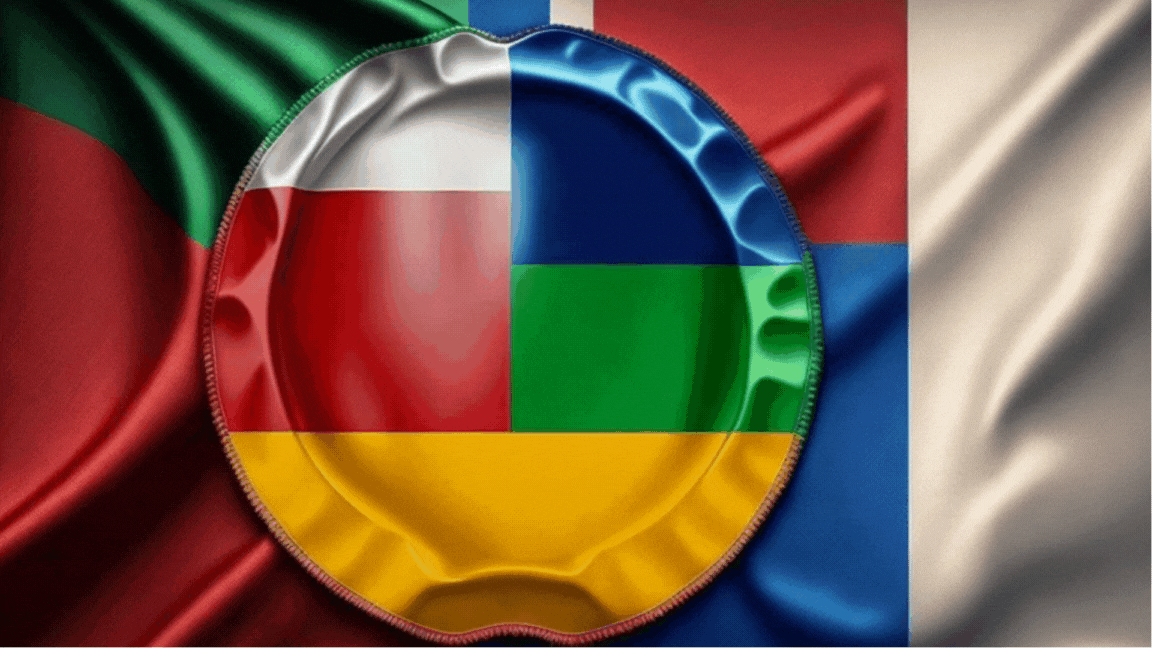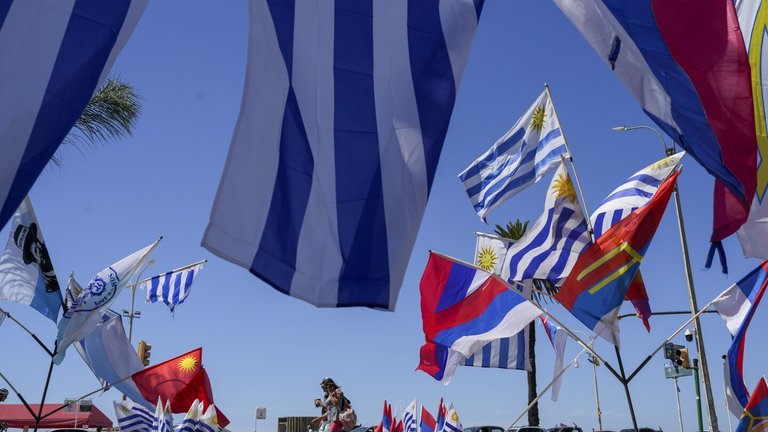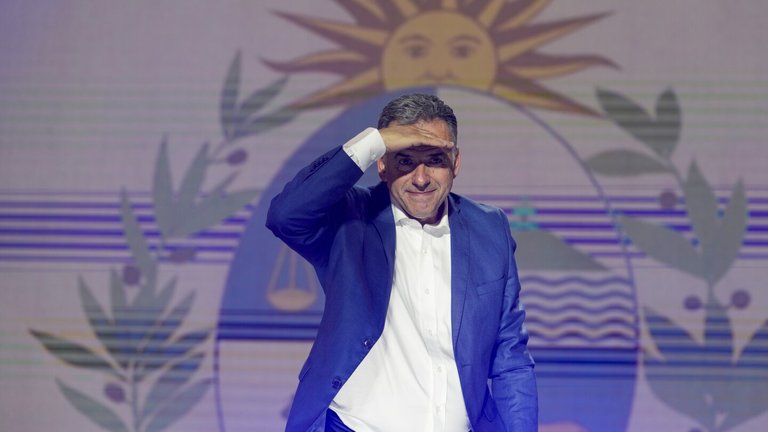
The “modern left” triumphs in Uruguay
As we had projected in our Sunday report, center-left candidate Yamandú Orsi won the presidency of Uruguay in the final electoral round against the ruling party's representative Álvaro Delgado. Orsi's victory would constitute the confirmation of a general trend of the electorate elsewhere to remove incumbent political forces from power, even when their governmental management has been relatively well received, as in the case of the administration of outgoing president Luis Lacalle, which in any case faced several corruption scandals and could not stop a pattern of slow economic growth. “With sadness, but without guilt, we can congratulate the winner,” Delgado said accepting his defeat before his supporters. “But it's one thing to lose the elections and another to be defeated. We are not defeated,” he harangued. “The country of liberty, equality, and fraternity has triumphed once again,” the President-elect told instead to a cheering crowd. “I will be the president who calls for national dialogue again and again, who builds a more integrated society and country,” he promised. “Let's understand that there is another part of our country who have different feelings today [...] These people will also have to help build a better country. We need them too,” he added.
The truth is that something like this is expected, since there were not many differences in the economic proposals of the candidates, although Orsi is expected to recover more strongly the channeling of resources for social assistance programs. But the market economy is not discussed, and it is not only about what we read or hear from an Orsi who presents himself as a representative of a sort of “modern (or new) left”, but also about a decisive political figure in recent years in Uruguay, the ascetic former president José Mujica. With a Marxist background and former guerrilla fighter, Mujica has ended up distancing himself from the so-called “dictatorship of the proletariat” ruled by a single (communist) party—as in the Cuban case, although he respects the Cuban Revolution as a historical-social phenomenon and particularly the figure of Fidel Castro—, and has firmly positioned himself in the social democratic perspective of playing liberal democracy and trying to bring about certain changes favorable to the most dispossessed classes without attacking “the bourgeoisie”, which, according to him, delivers more than the “parasitic bureaucracy” that ends up “entrenched” in power in the most radical socialisms.
 Source
SourceThat's why he rejects what happened in the most recent Venezuelan electoral process or the course of the Nicaraguan political system. The first case is very interesting because what bothers Mujica—who was diagnosed with a malignant tumor in his esophagus in April of this year—is the attempt to stage a liberal or Western (flawed) democracy when the reality is that Chavismo advances a “dictatorship of the proletariat”-type system, although what is the proletariat, in general, today and what is in Venezuela in particular—that is, who governs and for whom—is an interesting theoretical-practical discussion—also, of course, in cases like Cuba or others. What Mujica is asking is not to play around with half measures and to state clearly what you are betting on: either one thing or the other, which removes Cuba from the scope of this criticism because there is no pretense here of playing at liberal democracy.
Turning to what's next for Uruguay after the victory of the history professor and also a folk dancer—that is, a man who comes “from below”—who will soon become president, the focus is clearly on issues such as poverty—a phenomenon affecting one in four children in the small and relatively prosperous South American nation—and the surging of organized crime, a dynamic “fueled by changing cocaine smuggling routes”. In the latter case, while Uruguay is far from the levels of violence we see daily in several countries in Latin America, it had better tackle the problem in time before it begins to metastasize. In terms of foreign policy, Orsi would be better aligned than Lacalle with the Mercosur countries. Lacalle was willing to sign more intense trade relations with China—a sort of "ideological nonsense" in his case—to boycott ongoing negotiations associated with the disputed—from France, mainly—free trade agreement with Europe. It remains to be seen how his relationship with Milei and his explicit position on Venezuela will turn out. He will take office on March 1, 2025.
 President-elect Yamandú Orsi (source of the image).
President-elect Yamandú Orsi (source of the image).Trump continues to shake the markets without yet sitting at the Resolute desk
“Nearly half of US farm workers lack legal status.” The data is at the base of a claim of the US agricultural industry that seeks to “educate” the coming administration 2.0 of Donald Trump on the likely impact of its project of mass deportation of undocumented immigrants. Some representatives warn that the supply chain would suffer a severe breakdown if the Republican leader's promises materialize, as it is “heavily dependent on immigrants [living] in the United States illegally”. The 2 million farm workers lacking legal status do not include “many dairy and meatpacking workers” on the same line. “They're filling critical roles that many U.S.-born workers are either unable or unwilling to perform,” a professor of food economics and policy—of Latino origin—at Michigan State University said. “The American people re-elected President Trump by a resounding margin giving him a mandate to implement the promises he made on the campaign trail, like deporting migrant criminals and restoring our economic greatness [...] He will deliver,” a Trump transition spokesperson told Reuters. The main doubt yet is first whether undocumented migrants are included among the “criminals”, it seems that they are, and then whether, as has been projected, a certain "priority factor" will finally be applied when moving forward with the deportation plan, concentrating on those with unexecuted deportation orders. Trump's first season in the White House saw anti-immigrant raids on processing plants in Mississippi and Nebraska. Even within the Republican Party, there are calls to not target the agricultural sector for deportations.
Presidents have used immigration 'parole' since the 1950s. Now it could disappear under Trump https://t.co/iwmIpej48o @AP #Immigration #parole #humanitarian #Biden #Trump #CHNV
November 26, 2024— Gisela Salomon (@giselasalomon)
I will have an extensive report ready tomorrow on the financial and market position impacts of Trump's recent announcement of potential tariffs on Mexican, Chinese, and Canadian products.
And this is all for our report today. I have referenced the sources dynamically in the text, and remember you can learn how and where to follow the LATAM trail news by reading my work here. Have a nice day.

